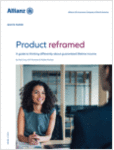As explored in the recently published Vanguard “Advisor’s Alpha” report, many Americans hold multiple retirement account types, ranging from tax-deferred traditional 401(k)s and individual retirement accounts to after-tax Roth 401(k)s and Roth IRAs.
Many Americans also lack sources of guaranteed income for retirement beyond Social Security, and as a result, the need for informed investment and spending strategies is “more critical and more complex than ever,” the report argues.
In addition, the research shows this is a domain where advisors can add significant value for their clients by providing guidance about sustainable portfolio withdrawals, on one hand, and perspective on constructing durable income-oriented portfolios, on the other.
“The stakes are high, and the impact of subpar decisions can be severe,” the authors warn. “The value of getting this right is substantial, controllable and measurable in terms of increased portfolio longevity and success rates, decreased income variability and mitigation of sequence-of-return risk.”
Among the report’s recommendations is that advisors help their clients embrace the need for flexibility in retirement income planning and communicate clearly about the ways income-focused portfolios look and behave differently from accumulation-focused portfolios.
See the slideshow for nine important insights about the income planning and portfolio management process for income-focused retirees. Armed with this information, clients (and their advisors) will be primed for more effective discussions about the right approach to the “decumulation challenge.”







 November 15, 2023 at 01:16 PM
November 15, 2023 at 01:16 PM





















 Slideshow
Slideshow





